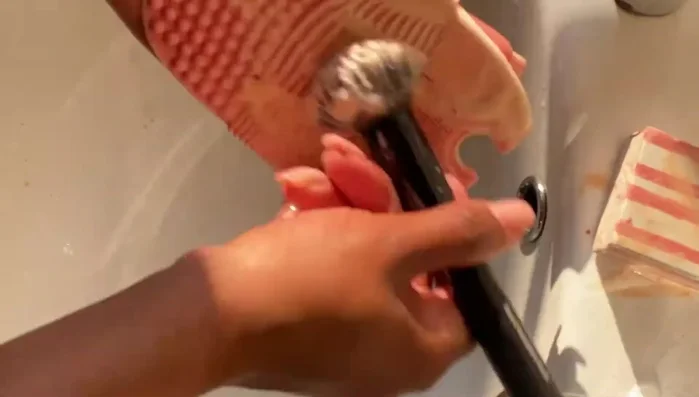Acne-prone skin requires extra care, and that includes mindful makeup application and diligent brush hygiene. Dirty makeup brushes harbor bacteria, oil, and dead skin cells, all of which can exacerbate breakouts and lead to inflammation. Using contaminated brushes means transferring these impurities directly onto your already vulnerable complexion, negating the benefits of any skincare routine. This can lead to clogged pores, persistent blemishes, and ultimately, more frustration in your skincare journey. Choosing the right products and cleaning methods is crucial for maintaining clear, healthy skin.
Fortunately, keeping your brushes clean doesn't have to be a time-consuming chore. This article outlines a quick and efficient acne-safe method for cleaning your makeup brushes, ensuring they remain hygienic and contribute to a clearer complexion. Ready to learn how to maintain sparkling clean brushes while protecting your skin? Let's dive into the step-by-step process!
Preparation and Safety Guidelines
- Brush Cleaning Bar (specific brand mentioned in video, available globally)
- Brush Cleaning Mat
- Container for water
- Always use a gentle, acne-safe cleanser specifically designed for makeup brushes. Avoid harsh soaps or detergents that can strip the brushes of their essential oils and potentially irritate your skin.
- Thoroughly rinse your brushes until all traces of cleanser and makeup are gone. Residual product can harbor bacteria and contribute to breakouts.
- Allow brushes to air dry completely, preferably laying them flat on a clean towel, before using them again. Storing damp brushes in a case can foster bacterial growth.
Step-by-Step Instructions
Wet the Brushes
- Run brushes under water.

Wet the Brushes Clean with Bar Soap
- Rub brushes against the cleaning bar.

Clean with Bar Soap Scrub on Mat
- Rub brushes against the brush cleaning mat.

Scrub on Mat Deep Clean Dense Brushes
- For dense brushes (foundation, stippling), use fingers to clean the middle.

Deep Clean Dense Brushes Rinse
- Rinse thoroughly.

Rinse Dry and Reshape
- Reshape brushes and let them air dry.

Dry and Reshape
Read more: Deep Clean Your Makeup Brushes & Sponges: Pro Tips for Long-Lasting Tools
Tips
- Do not soak brushes in water to prevent damage to the glue and handle.
- Submerge bristles first into water to avoid getting glue wet.
- Separate large and small brushes when washing to control water exposure.
- Avoid using cheap eyeshadows on high-quality brushes to prevent staining.
- Reshape wet brushes to their original form before drying to prevent bristles from drying in awkward positions.






